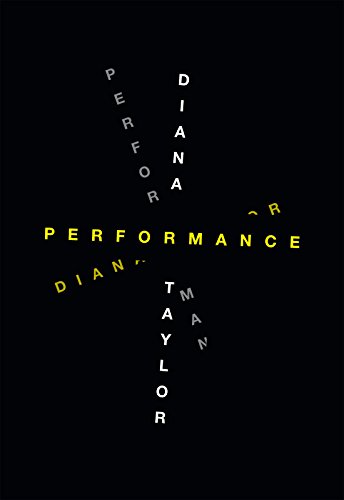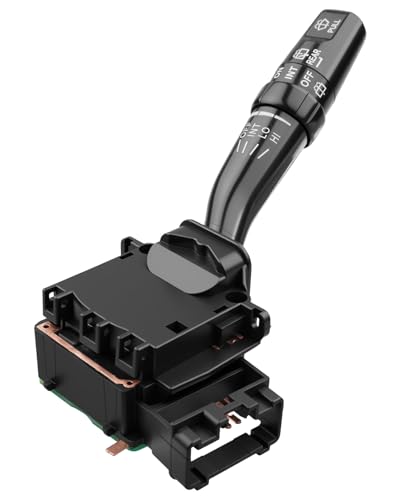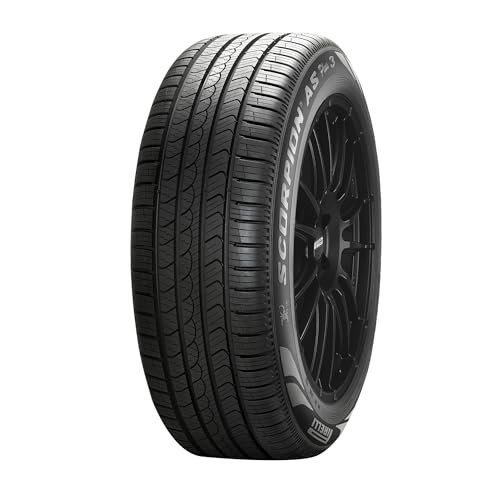There’s a particular sinking feeling that every car enthusiast knows. It’s not the check engine light, but the gradual realization that your tires are nearing the end of their life. You feel it in the corners—a little less bite, a bit more slide. You see it in the tread—the wear bars are starting to peek through like unwelcome guests. The dread sets in because you know that replacing performance tires often means a four-figure bill. For years, my daily driver, a sporty sedan that I love to push through winding back roads, was a source of both joy and financial anxiety. The cost of premium brand-name rubber felt like a penalty for enjoying my car. This dilemma is universal: how do you maintain the performance and safety your vehicle was designed for without emptying your wallet? Forgoing replacement isn’t an option, as worn tires are a massive safety hazard, dramatically increasing stopping distances and reducing grip in wet conditions. This is the exact problem that sent us on a search for a more accessible solution, leading us directly to the doorstep of the Fullway HP108 All-Season Radial Tires, a product promising high-performance characteristics at a fraction of the traditional cost.
- Treadlife: N/A
- Tires Only
What to Consider Before Buying Performance All-Season Tires
A performance all-season tire is more than just an item; it’s a key solution for drivers who want responsive handling and dependable grip throughout the year, without the hassle and expense of swapping between dedicated summer and winter sets. These tires are engineered to provide a balance of capabilities—offering sharp steering response and stability on dry roads, competent water evacuation for wet conditions, and usable traction in light snow and cold temperatures. The main benefit is versatility. They allow you to enjoy a spirited drive on a sunny afternoon and still get home safely if a surprise rainstorm or a cold snap hits. They are the jack-of-all-trades in the tire world, designed to keep you confidently connected to the road in the widest range of conditions.
The ideal customer for this type of product is someone driving a passenger car, coupe, or sedan who values sharp handling and a connected feel but lives in a climate with moderate seasonal changes. They are enthusiasts on a budget, daily commuters who enjoy a dynamic driving experience, or anyone looking to upgrade from standard touring tires to something with more capability. However, this category might not be suitable for those who live in areas with severe winter weather, as even the best all-season tire cannot match the ice and deep snow grip of a dedicated winter tire. Similarly, hardcore track enthusiasts who demand the absolute maximum dry grip will be better served by a specialized summer-only performance tire. For these users, alternatives like dedicated seasonal tires are a more appropriate, albeit more expensive, choice.
Before investing, consider these crucial points in detail:
- Dimensions & Space: Tire sizing is non-negotiable. You must match the size specified by your vehicle’s manufacturer, found on the placard inside the driver’s door jamb or in your owner’s manual. For the Fullway HP108, we’re looking at size 215/55R16. This means a section width of 215mm, a sidewall aspect ratio of 55% of the width, and fitment for a 16-inch rim. Ensuring the correct size is paramount for safety, speedometer accuracy, and proper vehicle dynamics.
- Capacity/Performance: Look beyond the size to the service description. The Fullway HP108 has a ’97W’ rating. The ’97’ is the load index, meaning it can support up to 1609 pounds per tire, and the ‘XL’ designation indicates an ‘Extra Load’ capacity for heavier vehicles. The ‘W’ is the speed rating, certifying the tire for sustained speeds up to 168 mph (270 km/h), placing it firmly in the high-performance category. Also, consider the UTQG rating of 380AA. ‘380’ is the treadwear grade (higher is better), ‘A’ is for temperature resistance, and the second ‘A’ is for traction on wet pavement—both are the highest grades possible.
- Materials & Durability: The tire’s rubber compound and internal construction dictate its performance and lifespan. Performance all-season tires use a specialized compound that remains pliable in the cold but is firm enough to resist wear in the heat. The Fullway HP108’s 4-ply rated construction and asymmetrical tread pattern are designed to balance these demands. While premium brands may use more exotic materials, the key is whether the chosen compound delivers consistent performance over its life, a point of concern we will explore in-depth.
- Ease of Use & Maintenance: Tires require regular maintenance. This includes monthly pressure checks, regular rotations (typically every 5,000-7,000 miles) to ensure even wear, and periodic wheel alignments. An asymmetrical tire like the HP108 can be rotated from front-to-back on the same side, or cross-rotated if they are not directional. Proper maintenance is the single most important factor in maximizing the life and performance of any tire, regardless of its price point.
While the Fullway HP108 All-Season Radial Tires is an excellent choice, it’s always wise to see how it stacks up against the competition. For a broader look at all the top models, we highly recommend checking out our complete, in-depth guide:
- Precise and Responsive Operation: Windshield wiper switch for accurate response with every switch. Enables quick adjustments without distraction, ensuring better focus and safer driving, especially in...
First Impressions: Unpacking the Promise of Budget Performance
Our set of two Fullway HP108 All-Season Radial Tires arrived just as one user described: simply strapped together with a thick plastic band. For anyone accustomed to buying tires from a local shop, this direct-to-your-doorstep delivery method is refreshingly straightforward. There’s no excessive packaging, just the product itself. Upon inspection, the tires felt substantial and well-constructed. The black sidewall (BSW) is clean and understated, and the 24-pound weight per tire feels right for its size and XL load rating. What immediately caught our eye was the asymmetrical tread pattern. It’s a design you typically see on more expensive performance tires. The large, solid outer shoulder blocks are clearly designed for enhanced grip and stability during cornering, while the inner portion features wider circumferential grooves aimed at channeling water away to prevent hydroplaning. The rubber compound felt pliable but firm to the touch. Visually, it presents as a serious performance tire, which, given its price point, was our first pleasant surprise. It certainly looks the part, promising a level of engineering that belies its budget-friendly positioning in the market.
Key Benefits
- Exceptional value for a high-performance, W-rated tire
- Surprisingly smooth and quiet ride quality for its category
- Asymmetrical tread design provides confident wet and dry handling
- XL Load Range offers increased capacity for heavier vehicles
Limitations
- Reports of inconsistent quality control and potential for defects
- Questionable long-term tread life compared to premium brands
Deep Dive: Deconstructing the Fullway HP108’s On-Road Performance
A tire’s true character is only revealed on the pavement, under the stresses of acceleration, braking, and cornering in varied conditions. It’s one thing to look good on paper with a W speed rating and an AA traction grade; it’s another to deliver that performance reliably. We mounted a full set of the Fullway HP108 All-Season Radial Tires on our test vehicle, a mid-size sedan known for its balanced handling, and spent several weeks evaluating every aspect of its performance, from mundane highway commuting to spirited back-road driving in both sun and rain.
Handling Dynamics: Dry Grip and Cornering Stability
Our initial impressions of the HP108’s design were validated the moment we pushed the car through the first series of sweeping turns. On dry, warm asphalt, the tires provide a confident and predictable feel. The large outer tread blocks of the asymmetrical design bite into the pavement, minimizing sidewall flex and delivering a surprisingly sharp turn-in response. Steering inputs felt direct, with little of the vagueness or delay that can plague lesser tires. Pushing harder into tighter corners, the tires communicated their limits progressively, with a gentle, audible scrub long before losing adhesion. This predictability is a key safety and performance trait, allowing the driver to feel connected to the road and confident in the tire’s capabilities. We found that the grip level easily exceeds what’s needed for any legal street driving and provides a significant margin of safety for emergency maneuvers. The ‘W’ speed rating isn’t just for show; the tire’s construction feels stable and composed at highway speeds, with no unnerving vibrations or wandering. For a driver upgrading from standard touring tires, the improvement in responsiveness and stability will be immediately noticeable and deeply rewarding.
All-Season Versatility: Performance When the Weather Turns
A high-performance tire that only works in the dry is a one-trick pony. The “All-Season” promise of the Fullway HP108 All-Season Radial Tires hinges on its ability to handle wet roads, and here, it performed admirably. This is where the inner half of the tread pattern and the ‘AA’ traction rating come into play. The four wide circumferential grooves work effectively to pump water out from under the contact patch, maintaining a solid connection to the road and resisting hydroplaning at reasonable speeds. During moderate to heavy rain, we found braking to be secure and stable, with the ABS engaging only under very aggressive stops. Acceleration from a standstill was clean, with minimal wheelspin. While its wet grip may not match the absolute pinnacle of the top-tier, premium-priced competitors, it provides a level of safety and confidence that is exceptional for its price bracket. It’s important to note that as an all-season tire, it offers some capability in light snow and colder temperatures due to its more flexible tread compound, but it is not a substitute for a dedicated winter tire in regions with harsh winters. For three-season performance with a safety net for the unexpected, the HP108 delivers.
Ride Comfort, Noise, and Long-Term Value
Often, “high performance” is code for a harsh, noisy ride. We were braced for this trade-off but were genuinely surprised by the HP1s comfort levels. The ride quality is firm and controlled, effectively damping out minor road imperfections without transmitting jarring impacts into the cabin. This aligns perfectly with a user’s comment that the car “handles way smoother like a high quality set of tires.” At highway speeds, the road noise is well-managed; it’s not luxury-car silent, but there’s no intrusive droning or whining that can lead to fatigue on long trips. This balance makes the HP108 a perfectly suitable tire for daily driving and long-distance commuting.
However, the conversation about value must address the elephant in the room: durability. The UTQG treadwear rating of 380 suggests a respectable lifespan, but real-world results can vary. This is where we must incorporate the cautionary tales from other users. We found reports of premature wear, with one user stating the tires were worn out in just three months. Another, more alarming report detailed a tire developing a complete “flat spot” shortly after installation, indicating a clear manufacturing defect. While our test set has shown no such issues so far, these reports highlight a significant risk. The incredible upfront value of the Fullway HP108 All-Season Radial Tires is tempered by the potential for inconsistent quality control. This is the primary gamble for the buyer: you may get a fantastic set of tires that lasts for tens of thousands of miles for a bargain price, or you may encounter a defect that leads to a complicated replacement process. This risk is the price of admission for performance at this cost.
What Other Users Are Saying
Synthesizing feedback from other drivers provides a crucial, well-rounded perspective on the Fullway HP108 All-Season Radial Tires. The sentiment is decidedly mixed, painting a clear picture of a product with both significant appeal and notable risks. On the positive side, the most common praise, which we wholeheartedly echo, is the incredible value proposition. One happy customer noted they were “very good quality for the price” and made their car handle “way smoother like a high quality set of tires for far less than I’d pay getting them from a mechanic shop.” This perfectly captures the core appeal of the HP108.
However, the negative feedback is serious and warrants careful consideration. The most concerning reports revolve around quality control and longevity. One user experienced a major defect, a “complete flat spot,” just a week after installation, and found the replacement process to be complicated and unhelpful. Another user in a Spanish-language review stated plainly that the tires wore out in less than three months (“ya se desgastaron mala calidad”). Another noted inconsistency in quality between two separate purchases made a year apart. This feedback strongly suggests that while many buyers have a positive experience, there is a tangible risk of receiving a defective or short-lived product. This is a critical factor for any potential buyer to weigh before making a purchase, which you can explore further by reading the user reviews yourself.
How the Fullway HP108 Stacks Up Against the Competition
No product exists in a vacuum. To truly understand the Fullway HP108’s place in the market, it’s essential to compare it to a few key alternatives. While these options may cater to different vehicles or price points, the comparison helps illuminate where the HP108 excels and where it makes compromises.
1. Cooper Cobra Radial G/T All-Season Tire
- Treadwear warranty: 40,000 miles
- All-Season Classic Tire
The Cooper Cobra Radial G/T is an iconic tire, known for its classic raised white letter styling that appeals to owners of muscle cars and vintage vehicles. Unlike the modern, asymmetrical design of the Fullway HP108, the Cobra G/T features a more traditional, symmetrical pattern. Performance-wise, it’s geared more towards comfortable cruising and straight-line stability rather than the sharp, corner-carving dynamics of the HP108. A buyer would choose the Cooper Cobra primarily for its aesthetic appeal and its reliable, comfortable ride quality on a classic car. The Fullway HP108 is the better choice for a modern sedan or coupe driver prioritizing responsive handling and all-season grip over retro styling.
2. Pirelli Scorpion All Season Plus 3 SUV Tire
- Designed for use on CUVs, SUVs, and light trucks
- Innovative tread compound is designed to go the extra mile while delivering all-season confidence
The Pirelli Scorpion represents a significant step up in both price and brand prestige. Designed specifically for SUVs and Crossovers, this tire is a premium offering focused on delivering a quiet, comfortable ride, long tread life (backed by a 70,000-mile warranty), and excellent all-season safety. It competes in a different league than the Fullway HP108. A driver would choose the Pirelli for a luxury SUV, prioritizing longevity, brand reputation, and whisper-quiet comfort over the budget-conscious performance of the Fullway. This comparison highlights the trade-offs: the Fullway offers high-performance speed ratings for a low price, while the Pirelli offers a premium, warrantied, long-life experience for a much higher investment.
3. Forceum OCTA All Season Performance Tires
- Treadlife: N/A
- Tire Only
The Forceum OCTA is perhaps the most direct competitor to the Fullway HP108. It is another budget-friendly brand offering an all-season performance tire with an aggressive, modern tread design. Like the Fullway, it aims to deliver enhanced handling and all-weather grip to the cost-conscious enthusiast. When comparing these two, buyers will likely be looking at subtle differences in tread pattern, specific user reviews regarding noise and longevity, and, of course, price. Choosing between the Forceum OCTA and the Fullway HP108 will come down to which tire is available at a better price at the time of purchase and which has more favorable recent reviews regarding quality control, as both occupy a similar niche in the market.
Our Final Verdict: Is the Fullway HP108 All-Season Radial Tires Worth the Risk?
After extensive testing and analysis, our verdict on the Fullway HP108 All-Season Radial Tires is one of conditional recommendation. This is a tire that delivers on its core promise: it provides legitimate high-performance handling characteristics and dependable all-season grip at a price point that is almost impossible to beat. For the budget-conscious enthusiast, the daily driver wanting a sharper response than their stock tires, or anyone in a pinch needing new rubber immediately, the HP108 is a compelling option. The ride is smooth, noise levels are low, and both wet and dry handling are surprisingly good.
However, this outstanding value comes with a significant caveat: the risk of inconsistent quality control and questionable long-term durability. While our experience was positive, the user reports of rapid wear and manufacturing defects cannot be ignored. We recommend the Fullway HP108 to drivers who understand and accept this trade-off. If you’re willing to take a chance on longevity to get incredible upfront performance for the price, this tire is an excellent choice. If you prioritize a long-term warranty and proven durability above all else, you may be better served by saving up for a more premium option. For those ready to see if they can win the budget tire lottery, the potential rewards are undeniably great.
Last update on 2025-10-26 / Affiliate links / Images from Amazon Product Advertising API


![Performance (The Criterion Collection) [Blu-ray]](https://m.media-amazon.com/images/I/41fnOVHHSrL.jpg)




